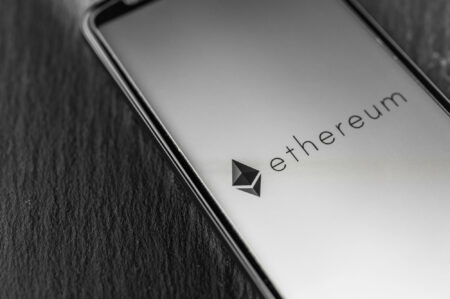What has been happening around Blockchain Technology and Cryptocurrencies this week? The most relevant local and international developments as well as appealing background reports in a pointed and compact way in retrospect in our weekly review.
In addition to the increasing digitization in payment and investment matters, the development of digital central bank currencies (CBDCs) is also accelerating. This week, the ECB and the Australian Central Bank drew attention to themselves with development reports of their own digital currency. Earlier this year, the BIS published a survey showing the work being carried out by the central banks on CBDCs. The study showed that 80% of participating central banks are already closely involved in the development of their own digital currency. One month ago, the European Central Bank (ECB) published a report on a digital euro. This week, Christine Lagarde, President of the ECB, made a statement regarding the introduction of a CBDC. A public opinion poll is to be conducted to find out what the public thinks about the digital euro. Not everyone is satisfied with the planned introduction. With digital currencies, central banks have new opportunities. They can directly distribute and program the new currency independently of the banking system. In addition to seamless control of cash flows, CBDCs also allow the institutions to create different tranches with different characteristics (i.e. restrictions, expiration, interest rates). Critics fear that the upcoming new possibilities for central banks will not only lead to an increasing devaluation of their own fiat currency, but also express concerns about data protection.
Authorities around the globe are working on the introduction of a digital central bank currency. The Reserve Bank of Australia (RBA) this week announced a cooperation with a leading blockchain company that works closely with the major US bank JP Morgan. Their aim is to explore the feasibility of a wholesale CBDC. As the only CBDC project to date, Australia would like to use the public Ethereum blockchain. The Chinese Central Bank has currently made the most progress in this field. The digital yuan is already in an active test phase with various participants.
A driving force in the world of digital currencies this summer was the area of "Decentralized Finance" (DeFi). In general, this refers to Ethereum-based applications (dApps) that offer financing in the form of smart contracts against collateral in the form of crypto-assets. This "decentralized financial world" came out of nowhere about six months ago and experienced rapid growth within a short period of time, with billions in transactions. Within this area, there are different fields of investments besides the many projects. Yves Longchamp examines three different strategies with regard to their risk/return potential.
Bitcoin also saw a rapid increase this month. Last week alone the crypto currency was able to expand its breakout through important resistances and reached new yearly highs. In such times it is important to protect your crypto currencies sufficiently. When acquiring and storing crypto valuables, it is important to follow some safeguards. In addition to strong passwords and 2-factor authentication on crypto exchanges, a hardware wallet should ideally always be used. Further valuable information can be found in the basic knowledge article.
Furthermore: Not so long ago, there was no other possibility than to pay the wages in the form of coins and bills. Today bank transfers are the absolute standard. The next step of development could be digital currencies. A Japanese eSports team will reward their players with crypto currencies for the first time. The subsidiary of Japan's largest financial services provider, SBI Holdings, has agreed with four players to pay their salaries in a crypto currency. "Crypto wages" are also permitted in principle under Swiss law. Historically, the form of remuneration has been subject to constant change.
Selected articles in the weekly review:
The European Central Bank is working intensively on the introduction of a digital central bank currency (CBDC). The President of the ECB, Christine Lagarde, has now announced a public survey on a digital euro.
https://cryptovalleyjournal.com/hot-topics/news-en/christine-lagarde-announces-a-survey-on-the-digital-euro/
The Central Bank of Australia is also starting in-depth research on CBDCs. The Central Bank is cooperating with a leading Ethereum software company to launch its own digital central bank currency.
The world of "Decentralized Finance" (DeFi) experienced rapid development this year. In addition to various projects, different fields of investment emerged. A risk/return study on three different strategies.
Protection against fraudsters is particularly important in the crypto world. The most important security recommendations.
A Japanese eSports team will pay the wages of their new players for the first time in crypto currencies. In Switzerland, too, such crypto-wages are generally allowed and could be increasingly put to use.
Would you like to receive the Weekly review and other interesting formats via push message?




